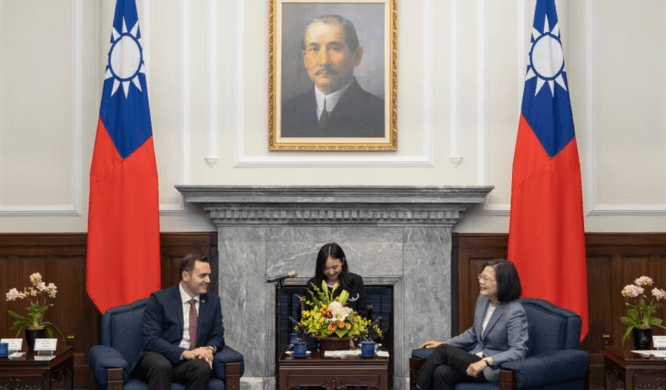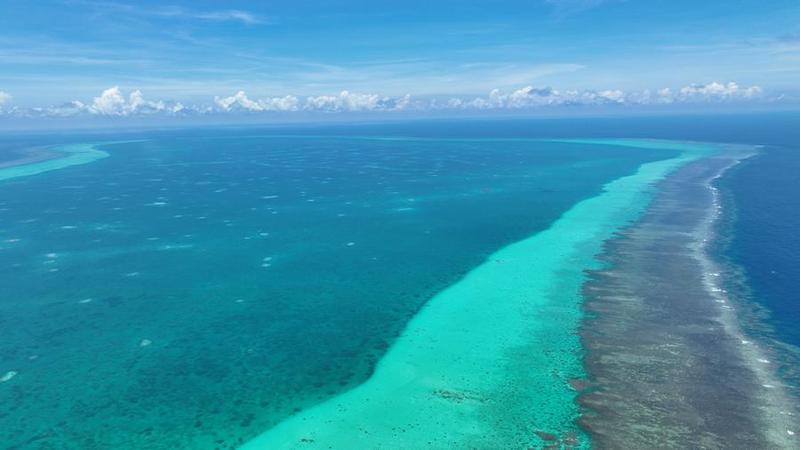Taiwan Must Strike a Tough Balance as China Puts More Pressure on It
China’s decision to increase regular patrols in waters near Taiwan’s outlying islands in recent days is an attempt to erode the long-standing status quo across the Taiwan Strait, and Taiwan must exercise caution in its response, some analysts have told VOA.
After two Chinese fishermen drowned fleeing a Taiwanese coast guard ship this month, China has increased pressure on Taiwan. Chinese coast guard officers boarded a Taiwanese tourist boat Tuesday, while Chinese coast guard vessels have repeatedly appeared in waters near Taiwan’s outlying Kinmen and Matsu islands, which are just a few kilometers from the Chinese mainland.
In response, Taiwan criticized Beijing for triggering panic with the abrupt inspection of the Taiwanese tourist boat and began deploying its coast guard vessels to monitor Chinese coast guard vessels’ activities or drive away Chinese boats that entered the restricted waters near its offshore islands.
While the events have not escalated into a major conflict across the Taiwan Strait, some observers say Beijing is trying to use the deaths to “create new facts” in the highly sensitive region and “upend rules of engagement” designed to prevent accidents.
“This is a willful, slow erosion of the status quo in the Taiwan Strait, [and] it’s a demonstration by Beijing that it sets the rules and can change them unilaterally,” J Michael Cole, senior adviser on countering foreign authoritarian influence with the International Republican Institute in Taiwan, told VOA in a written response.
Since Beijing’s moves are tailored for the domestic Chinese audience, Cole said the Chinese government hopes to reinforce the impression that Taiwan cannot defend its sovereignty. Beijing’s actions “are meant to reinforce the notion that Taipei is powerless to set out rules and to defend the Republic of China’s sovereignty,” he added.
Characterizing recent Chinese coast guard activities actions as part of Beijing’s gray zone operations against Taiwan, which often involve the use of irregular tactics without resorting to open conflict, some analysts say these operations will likely become a “new normal” near Taiwan’s outlying islands.
“Since China is already deploying coast guard vessels to waters near the Senkaku Island, which is claimed by both Japan, China, and Taiwan, on almost a daily basis, we can expect China to conduct similar operations near Kinmen and Matsu Islands,” Su Tzu-yun, a military analyst at the Taipei-based Institute for National Defense and Security Research, told VOA by phone.
So far, Taiwan has designated its coast guard to monitor and cope with the Chinese coast guard’s increased activities near the contested waters while Taiwan’s National Defense Ministry said there is no plan for the military to become directly involved in the dispute.
“Based on the principle of ‘no direct intervention and no escalation of the conflict,’ the Taiwanese military continues to monitor situations [in waters near the offshore islands] and we remain ready to assist the coast guard when necessary,” Deputy Director of the Taiwanese Defense Ministry’s Office of the Chief of Staff for Warfare and Plans Lee Chang-fu said during a daily press conference on Wednesday.
Cole in Taipei said that since Beijing is always searching for “reasons” to conduct gray zone operations near Taiwan, the Taiwanese government must exercise caution when figuring out its responses.
“Taipei must act carefully while laying out response plans to various contingencies,” he told VOA, adding that the need to strike a balance in its response may put Taiwan in an “uncomfortable position.”
In his view, a perceived lack of response by Taipei may be viewed domestically as the government’s inability to defend its sovereignty. On the other hand, Taiwanese authorities need to ensure their responses “don’t lead to recklessness,” Cole said.
“It’s a difficult balancing act, but one that Taipei has been learning to live with,” he said.
As Taiwan’s coast guard and navy have a coordinating mechanism dedicated to determining the level of response to China’s gray zone activities, Su said Taiwan will let its coast guard handle low-intensity threats posed by Beijing.
“Such practice is in line with international norms and will help Taiwan avoid becoming the aggressor in the cross-strait dispute,” he told VOA.
With less than three months until Taiwan’s new administration comes into power, some experts say Taipei needs to exercise extra caution in on cross-strait issues.
“Since Beijing may try to seek any opportunity to increase pressure on Taiwan, Taiwanese authorities need to remain restraint while ensuring they have the capabilities to safeguard Taiwan’s sovereignty and territorial integrity,” Shen Ming-shih, director of the Division of National Security Research at Taipei-based Institute for National Defense and Security Research, told VOA by phone.
He said the pressing issue for Taiwan is to avoid letting the capsizing snowball into the first step of China’s pressure campaign against the island.
“If China decides to use the accident to escalate its pressure campaign against Taiwan, they might initiate a series of operations through different government agencies, including poaching Taiwan’s diplomatic allies or conducting another large-scale military exercise near Taiwan,” Shen added.
Against this backdrop, Cole said Taipei should consider sending a clear message to the world that recent events are not isolated incidents but part of a larger operation with “wider ramifications” for the region.
“Given the high potential for major escalation, it’s in the region’s interest to encourage Beijing not to engage in this kind of adventurism that could spark a serious conflagration,” he told VOA.












